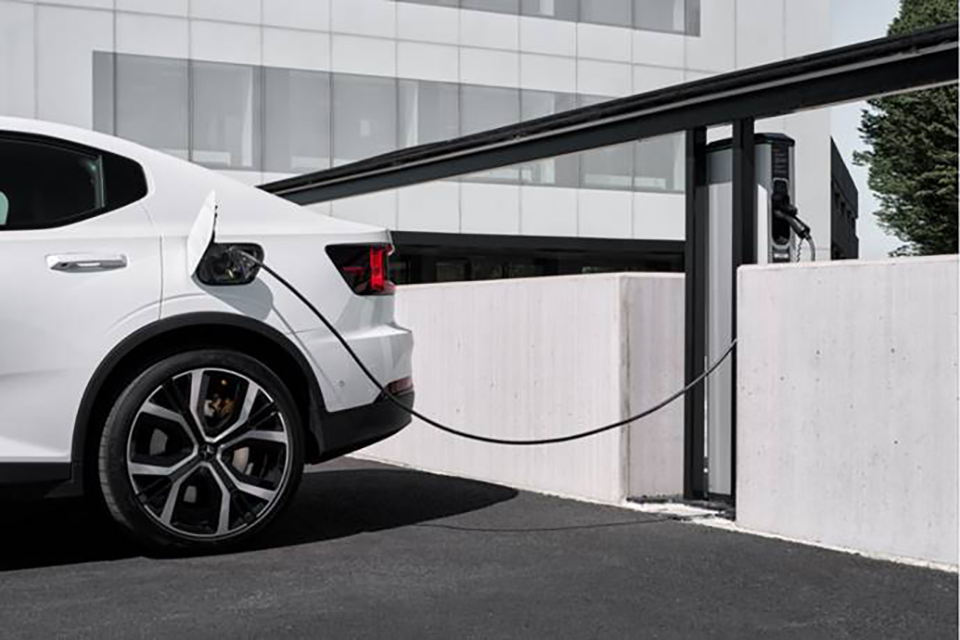The Electric Car Scheme Gov UK promotes electric vehicle adoption through grants and incentives. It aims to reduce carbon emissions and improve air quality.
The UK government supports the transition to electric vehicles (EVs) with various initiatives under the Electric Car Scheme. Grants are available to offset the cost of purchasing EVs and installing home charging points. This makes electric vehicles more accessible to a wider audience.
The scheme also includes funding for expanding public charging infrastructure. By encouraging EV adoption, the government aims to reduce carbon emissions and improve air quality. These efforts align with the UK’s commitment to achieving net-zero emissions by 2050. This initiative helps drivers save money on fuel and maintenance while contributing to a cleaner environment.
Introduction To Electric Car Scheme
The Electric Car Scheme by the UK government promotes green transportation. It supports the use of electric vehicles (EVs) to reduce carbon emissions. This initiative aligns with the nation’s goal to become carbon-neutral by 2050.
Green Transportation Goals
The UK aims to reduce air pollution. The Electric Car Scheme helps achieve this goal. It encourages the adoption of electric vehicles over traditional petrol and diesel cars. The scheme also supports the installation of charging stations across the country.
- Reduction in carbon emissions
- Promotion of sustainable energy
- Improvement in air quality
Importance Of The Scheme
The Electric Car Scheme offers several benefits. It provides financial incentives for purchasing electric cars. This makes EVs more affordable for the public. The scheme also aims to reduce the nation’s dependence on fossil fuels.
| Benefits | Description |
|---|---|
| Financial incentives | Reduces the cost of electric cars |
| Environmental impact | Decreases air pollution |
| Energy independence | Reduces reliance on fossil fuels |
The scheme also helps in job creation. It promotes the growth of the electric vehicle industry. This leads to new employment opportunities in various sectors.
- Manufacturing
- Maintenance
- Charging infrastructure
Overall, the Electric Car Scheme is a step towards a cleaner, greener future. It supports the UK’s vision of a sustainable environment for all.

Credit: www.linkedin.com
Benefits Of Electric Cars
The Electric Car Scheme Gov UK promotes the use of electric cars. These vehicles offer various benefits. Below, we will explore the benefits of electric cars.
Environmental Impact
Electric cars produce zero emissions. This reduces air pollution significantly. Cleaner air benefits everyone’s health. Fewer emissions also slow climate change. Electric cars use renewable energy sources. This helps preserve natural resources. Lower pollution means a healthier planet.
Cost Savings
Electric cars save money on fuel. Electricity is cheaper than petrol. Maintenance costs are lower too. Fewer moving parts mean fewer repairs. Owners save on tax and parking fees. Some cities offer free charging points. This further reduces costs.
| Benefit | Description |
|---|---|
| Zero Emissions | Reduces air pollution |
| Renewable Energy | Preserves natural resources |
| Fuel Savings | Electricity is cheaper than petrol |
| Lower Maintenance | Fewer moving parts reduce repair costs |
| Tax Benefits | Owners save on taxes and parking fees |
Government Incentives
The UK government offers many incentives to promote electric cars. These incentives make electric cars more affordable and appealing. Let’s explore these benefits under the subheadings below:
Subsidies And Grants
The UK provides subsidies and grants to lower the cost of electric vehicles. The Plug-in Car Grant is a popular subsidy. It reduces the purchase price of qualifying electric cars. This grant can save buyers up to £2,500.
There are also grants for installing home charging points. The Electric Vehicle Home charge Scheme covers up to 75% of the installation cost. This helps people charge their cars easily at home.
Tax Benefits
Electric car owners enjoy significant tax benefits. Company car drivers can save on tax through lower Benefit-in-Kind rates. The tax rate for electric company cars is only 2%.
Electric vehicles are also exempt from Vehicle Excise Duty (VED). This means you do not pay the road tax for electric cars.
Additionally, electric cars benefit from lower charges in Clean Air Zones. Many cities have zones where polluting cars must pay. Electric cars often avoid these charges, saving money for drivers.
Eligibility Criteria
Understanding the eligibility criteria for the Electric Car Scheme Gov Uk is essential. This guide will help you determine if you qualify.
Who Can Apply?
Not everyone can apply for the Electric Car Scheme Gov Uk. Here are the main groups who can:
- Residents of the UK.
- Individuals aged 18 or older.
- Businesses registered in the UK.
- Charities and public sector organizations.
Each group must meet specific criteria to qualify. Ensure you check each requirement carefully.
Necessary Documentation
Gathering the right necessary documentation is crucial. Here’s what you’ll need:
| Document | Purpose |
|---|---|
| Proof of Identity | To verify your personal information. |
| Proof of Address | To confirm your UK residency. |
| Vehicle Registration | To register your electric car. |
| Business Registration (if applicable) | For businesses applying for the scheme. |
| Charity Number (if applicable) | For charities applying for the scheme. |
Ensure all documents are up-to-date. Submitting outdated documents can delay your application.
Meeting the eligibility criteria and providing the right documents will streamline your application process.
Application Process
Applying for the Electric Car Scheme Gov UK can be straightforward. Follow the steps carefully to ensure a smooth experience. Learn about the common pitfalls to avoid during the application process.
Step-by-step Guide
Here’s a simple guide to help you apply for the Electric Car Scheme:
- Check Eligibility: Ensure you meet the scheme criteria.
- Gather Documents: Collect necessary documents like ID and vehicle details.
- Fill Application Form: Complete the online application form on the official website.
- Submit Application: Review and submit your application.
- Wait for Approval: Wait for confirmation from the authorities.
Make sure all information is accurate to avoid delays.
Common Pitfalls
Many applicants face issues during the application process. Avoid these common pitfalls:
- Incomplete Forms: Double-check your application for missing details.
- Incorrect Information: Ensure all information provided is accurate and up-to-date.
- Missing Documents: Attach all required documents before submission.
- Not Checking Eligibility: Verify eligibility criteria before applying.
- Late Submission: Submit your application within the given deadline.
Following these tips can help you avoid common mistakes and ensure a smoother application process.
Electric Car Models
The UK government’s electric car scheme has sparked interest in eco-friendly vehicles. Many drivers are switching to electric cars due to their benefits. Let’s explore some popular electric car models available under this scheme.
Popular Choices
Here are some popular electric car models:
- Tesla Model 3: Known for its range and performance.
- Nissan Leaf: A reliable and budget-friendly option.
- BMW i3: Stylish and compact, perfect for city driving.
- Hyundai Kona Electric: Offers great range and value.
Features Comparison
Let’s compare the features of these models:
| Model | Range (miles) | Top Speed (mph) | Price (£) |
|---|---|---|---|
| Tesla Model 3 | 263 | 140 | 40,490 |
| Nissan Leaf | 168 | 98 | 28,495 |
| BMW i3 | 153 | 93 | 37,785 |
| Hyundai Kona Electric | 258 | 104 | 32,845 |
Each model offers unique features and benefits. Choose according to your needs and budget.
Charging Infrastructure
The UK government is pushing for a greener future. One key aspect is the Charging Infrastructure for electric cars. Let’s explore the details.
Charging Stations
Charging stations are vital for electric cars. They offer a place to recharge your vehicle. Public charging stations are everywhere. You can find them at shopping centers, parking lots, and highways.
- Rapid chargers: These can charge a car in 30 minutes.
- Fast chargers: These take about 1-2 hours for a full charge.
- Slow chargers: Ideal for overnight charging, taking 6-12 hours.
Home Charging Solutions
Home charging is convenient. You can charge your car overnight. This ensures your car is ready each morning. Here are some options:
- Standard wall socket: This is the slowest option.
- Home wallbox: Faster than a standard socket, usually taking 6-8 hours.
Installing a home wallbox is easy. The government offers grants to help. This makes it affordable for everyone.
| Charger Type | Time to Charge | Use Case |
|---|---|---|
| Rapid Charger | 30 minutes | Quick top-ups on the go |
| Fast Charger | 1-2 hours | While shopping or working |
| Slow Charger | 6-12 hours | Overnight charging |

Credit: www.gov.uk
Future Of Green Transportation
The future of green transportation is bright. The Electric Car Scheme Gov UK leads the charge. This initiative aims to reduce carbon emissions. It promotes the use of electric cars. The move is essential for a cleaner planet.
Technological Advancements
Electric cars are becoming more advanced. New batteries last longer and charge faster. Autonomous driving features are now common. Electric motors are more efficient than before. These advancements make electric cars more appealing.
- Longer battery life
- Faster charging times
- Improved motor efficiency
- Autonomous driving capabilities
Policy Changes
Policy changes support the shift to electric cars. The government offers incentives for buyers. Grants make electric cars more affordable. Charging stations are being installed nationwide. Policies also aim to phase out diesel and petrol cars.
- Buyer incentives and grants
- Nationwide charging stations
- Phasing out diesel and petrol cars
| Technological Advancements | Policy Changes |
|---|---|
| Longer battery life | Buyer incentives |
| Faster charging times | Nationwide charging stations |
| Improved motor efficiency | Phasing out diesel and petrol cars |
| Autonomous driving | Grants for affordability |

Credit: www.gov.uk
Frequently Asked Questions
Does The Uk Government Give Grants For Electric Cars?
Yes, the UK government offers grants for electric cars. The Plug-in Car Grant provides up to £2,500 for eligible vehicles.
How Does The Electric Car Scheme Work Uk?
The UK electric car scheme offers grants to reduce the cost of electric vehicles. It includes the Plug-in Car Grant and home charging point subsidies. Eligibility depends on the car’s emissions and price.
How To Get A Free Car From The Government In The Uk?
You can’t get a free car directly from the UK government. Check local charities or mobility schemes for assistance.
Does The Government Give You Money To Buy An Electric Car?
Yes, the government offers financial incentives for buying electric cars. These include tax credits, rebates, and grants, varying by location.
Conclusion
Electric Car Scheme Gov UK offers numerous benefits for drivers and the environment. This initiative supports sustainable transportation. By switching to electric cars, you contribute to a cleaner future. Stay updated on government schemes to maximize your benefits. Make the smart move towards an eco-friendly lifestyle today.
